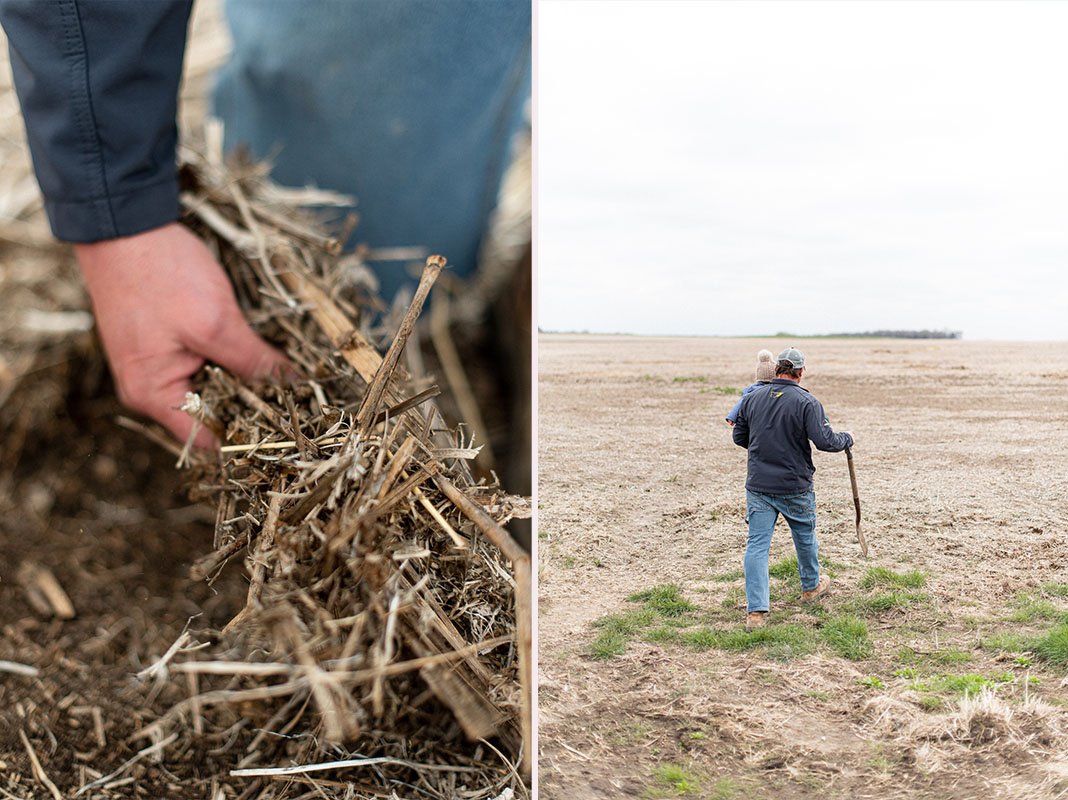Soil Health: How It Helps Combat Climate Change
Soil health is an important factor for successful and sustainable farming. Even better, maintaining excellent soil health actually helps to combat climate change. Matt Bainbridge, a local farmer in Ethan, South Dakota explained some of the techniques farmers are using to keep their soil healthy.
How can soil help combat climate change?
Since plants need carbon dioxide to thrive, they’re constantly taking it out of the atmosphere, and then that carbon is stored in the soil.
Doing a better job of keeping the carbon in the soil, or sequestering it, could make a big difference when it comes to climate change, Matt said.
The goal is not to disturb the soil as much as possible to prevent the carbon from being released from the soil into the atmosphere.
What farming practices help keep carbon in the soil?
Different agricultural practices that help sequester carbon in the soil include letting crop residue naturally break down, no-till farming, crop rotation, and using less fertilizer.
Matt’s farm has been no-till for a long time. Instead, they try to do as little of a disturbance to the actual surface of the soil as they can.
“We just go right into the field with last year’s residue on top and plant corn. We just slowly move it out of the way so that we can get the seed directly into the soil just perfectly. If we plant soybeans, we’ll just go right through the corn stalks and cut right through, just put seeds right in the ground.”
What is the future of sustainable soil health practices?
Understanding the microbiology of the soil and honing in on fertilizer efficiency are two ways Matt sees the future of sustainable soil health practices heading.
“If we can understand how all the different processes work within the soil, I think that’ll help us be more efficient with the fertilizer that we do apply,” Matt explained.
The main driver of soil health for Matt’s farm is fertilizer efficiency.
“We’re applying 25% less than what they even recommend to raise the crops. So I think that we’re getting there. Hopefully, we can cut that even more future.”
Another alternative that aids soil health is using manure or compost instead of fertilizer.
“Fertilizer takes fossil fuels to make…so if you can use manure to substitute, then you can save some of your carbon footprint,” Matt explained.
Why is soil health important?
Matt’s farm doesn’t have a lot of topsoil, so it’s crucial to keep it where it’s supposed to be in the fields, especially since that layer of soil also holds a lot of fertility.
“If we’re going to give away an inch of soil to a nasty dust storm and a dry spring, that just that isn’t going to work for us. We aren’t going to be able to pass it on to our next generations and we’re just not going to have good enough soil to keep on raising the crops that we’re blessed to raise right now.”



